Credits: UNDESA – DSPD Published on May 1, 2015 Widia Lariviere is Anishnabe from Timiskaming First Nation in Quebec, Canada, and has spent her entire life in an urban setting. She holds a degree in International Studies and Modern Languages from Laval University and a certificate in Immigration and Inter-ethnic Relations from the University of Quebec […]
Archive | Governance
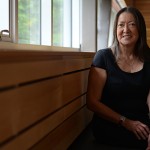
Stó:lō leader Dr. Gwendolyn Point to be New Chancellor of the University of the Fraser Valley
Originally Published by Anne Russell, Oct 6, 2014 in UFV Today Dr. Gwendolyn Point will be the new Chancellor of the University of the Fraser Valley.Point will take over from Dr. Brian Minter, who was UFV’s first Chancellor and served two terms stretching from 2008 to 2014. She will be installed as Chancellor at a […]
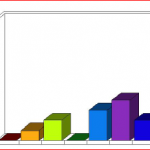
Indigenization Questionnaire for Participating Institutions
Indigenizing the Academy Questionnaire for Participating Institutions University of the Fraser Valley wishes to thank those institutions (listed below) that participated in its Indigenizing the Academy Questionnaire. The questions asked were similar to those discussed at the gathering: How many indigenous faculty and staff are at your institution? How many indigenous courses are offered? Is there an indigenization […]
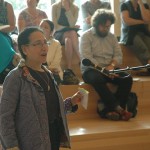
Dr. Lynne Davis — Alliance as a Site of Transformation
Dr. Lynne Davis’ Keynote speech can be found in full on the Resources-Videos page. Below, a summary: Posted by Carol Mammel Dr. Lynne Davis from Trent University spoke to the profound sharing, as she prepared to give her presentation. Beautiful, beautiful energy had begun the journey with its sacred beginning, with the sweat lodge, the […]
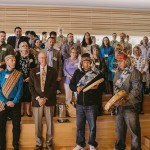
Senior Administrators on Governance: necessary to consult with Aboriginal advisors
Senior Administrators felt that it was necessary to consult with Aboriginal advisors to get started. It was considered important to have Learning Place for First Nations, which most institutions have, and First Nations programming included in the strategic plan. Programs needed to be created that acknowledge multiple nations. Administrators noted that many departments within the […]
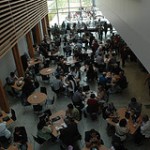
UFV Caucus on Governance: Can we promote understanding through staff training and development?
Staff (Caucus) observed that it was very easy to underestimate the challenges involved, and wondered how to make the curriculum more balanced for aboriginal students, and if there were a way to incorporate and promote understanding through staff training and development. It was suggested that ceremonial activities, like sweats, were important to indigenization, as they […]
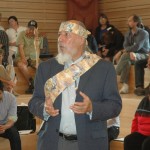
Indigenizers on Governance: Aboriginal hiring strategy to properly support students, create atmosphere of safety and trust
Indigenizers stressed, among other things, that First Nations should be hired throughout institutions, not just the First Nations studies department, and that institutions should report to aboriginal councils and that there be aboriginals and elders on the Board of Governors. It was felt that Indigenizing needed to be done by First Nations people to be […]
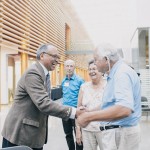
Elders on Governance: use love to combat prejudice, to promote body, mind, emotion and spirit; to “walk the talk”
Elders stressed that best practices in indigenizing would include making language and particularly language immersion an important part of indigenization. Indigenous teaching methods – employing patience, and teaching with love, with “no slapping or yelling” — were recommended as well, rather than token efforts (“not enough to take a non-indigenous program and slap a name […]
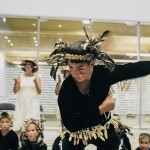
Student thoughts on Governance: Bringing love, compassion, and a connectedness to everything
Governance Students mentioned that it was difficult to make it through a system that talks about inclusion but that is backed by an infrastructure and policy that does not allow for inclusion: these issues are particularly extant within graduate studies, such as within Masters and PhD dissertation processes. Very often the students find themselves as […]

Disparity between First Nations education and the rest of Canada is real and unacceptable.
It has been estimated that it will take 65,000 graduates to close the gap in Aboriginal post-secondary educational attainment. In 2011, Canada’s Auditor General said the disparity between First Nations education and the rest of Canada is real and unacceptable. Lloyd Barber Summit on Aboriginal Post-Secondary Education: “Identifying Best Practices”
